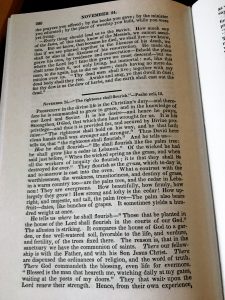 Luke 1:18-25
Luke 1:18-25
We must remember what the Holy Spirit already said of Zechariah the priest. He was right with God and a fully committed follower of the Lord (Luke 1:6). He was a righteous man, but he was not a perfect man. Righteous people still struggle with sin in all its ugliness. Sadly, Christians have a skewed view of sin, assuming that believers commit rather petty sins. This conveniently forgets that all sins are against the Holy God. One sin we struggle against is unbelief. It was about to lead Zechariah into difficulty.
And Zechariah said to the angel, “How shall I know this? For I am an old man, and my wife is advanced in years.” And the angel answered him, “I am Gabriel. I stand in the presence of God, and I was sent to speak to you and to bring you this good news (Luke 1:18-19 ESV).
Zechariah gave a reasonable, from his point of view, response to the angel’s good news. In many Bible studies over many years, I have heard professed Christians respond to the truth of God’s word like Zechariah did. Though the message was supernatural, which requires submissive faith, they reacted to it with natural, human-centered reasoning. Zechariah did not consider the power of God. He could only think about what he and his wife could do. When God’s word is clear, we must trust God and do what the word tells us. It might not make sense, we might raise several scenarios that indicate improbability, but we must rely on God’s ability, faithfulness, and love. Gabriel quickly pointed out what Zechariah ignored. He was sent from the presence of God in heaven to tell him good news. Why was Zechariah doubting and arguing against good news? Sadly, followers of Christ too often argue against God’s good news for them, exchanging faith in God for their supposed wisdom.
“And behold, you will be silent and unable to speak until the day that these things take place, because you did not believe my words, which will be fulfilled in their time.” And the people were waiting for Zechariah, and they were wondering at his delay in the temple. And when he came out, he was unable to speak to them, and they realized that he had seen a vision in the temple. And he kept making signs to them and remained mute. And when his time of service was ended, he went to his home (Luke 1:20-23 ESV).
Zechariah received discipline from the Lord. The reason was his unbelief. God used him to teach all of us the importance of faith in God’s word. The discipline corresponded to his sin. He failed to believe God’s message, so the Lord took away his ability to speak for a time. We should realize that the Lord requires us to take his word very seriously. Though we might struggle to understand it, we are not free to debate it. God’s word is the starting point for how we look at this world and our lives. For this reason, Zechariah had to ponder the supremacy of God’s word for the full length of Elizabeth’s pregnancy.
After these days his wife Elizabeth conceived, and for five months she kept herself hidden, saying, “Thus the Lord has done for me in the days when he looked on me, to take away my reproach among people” (Luke 1:24-25 ESV).
Elizabeth’s response was better. She believed and thanked the Lord for his mercy to her. Children are a gift from God, and we should highly treasure them. This Christmas, if you have children at your family gathering, reflect on the blessing of God to your family. Pay attention to them. Play with them. Rejoice with them. Laugh with them. Though Zechariah doubted the Lord’s promise, his doubts could not hinder their fulfillment. Praise God for this truth!
Grace and peace, David


 Luke 1:5-10
Luke 1:5-10 2 Peter 1:20-21
2 Peter 1:20-21 Luke 17:32
Luke 17:32 Luke 17:32
Luke 17:32 Luke 17:32
Luke 17:32 Third John 1:12
Third John 1:12 Acts 1:8-9
Acts 1:8-9 Proverbs 23:12
Proverbs 23:12